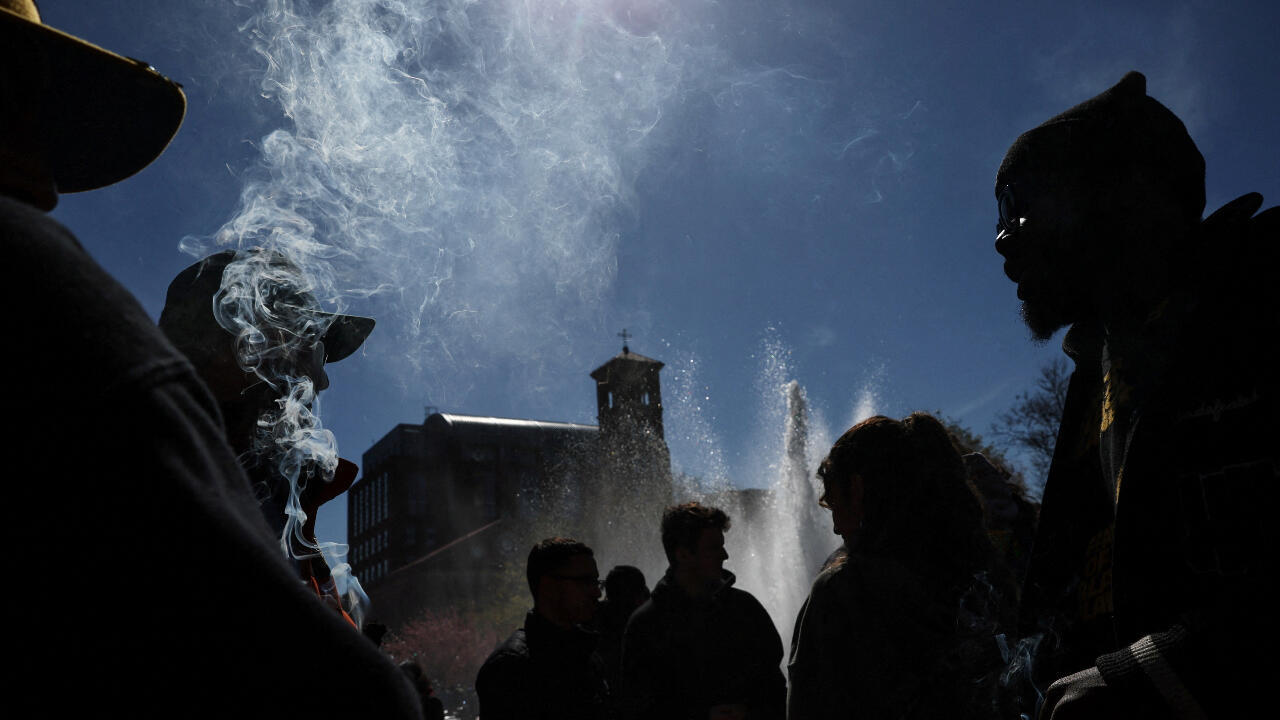This is one of the most consistent measures adopted by an American president to reduce drug-related crime. Joe Biden on Thursday took steps to review US policy on marijuana and issued a blanket pardon for all prior federal offenses for possession of the substance.
It is a considerable first step towards the decriminalization of marijuana. President Joe Biden is fulfilling a campaign promise, announcing this Thursday, October 6, that he will pardon all previous federal crimes of simple possession of this substance.
Although many states have legalized its medical or recreational use, marijuana remains illegal under US federal law. The president’s announcements they do not go so far as to decriminalize it, -which would require an act of Congress-, but they are the first significant measures adopted by an American president in that sense.
“No one should be in jail just for using or possessing marijuana,” Biden declared in a video announcing his executive actions, picking up one of his campaign slogans.
According to the White House, no one is currently in federal prison for “simple possession” of this drug. However, “criminal records for possession of marijuana have been unnecessary barriers to employment, housing and educational opportunities,” said the president. “My action will help alleviate the collateral consequences stemming from these convictions.”
A racial approach to combat arbitrary justice
In practice, those eligible for pardons will receive a certificate showing that they have been officially pardoned for their crime. That would encompass, according to White House officials, more than 6,500 people charged with simple marijuana possession under federal law.
The pardon does not cover convictions for possession of other drugs, or for charges related to the production or possession of marijuana with intent to distribute. Biden also does not pardon non-citizens who were in the country without legal status at the time of their arrest.

“Too many lives have been upended by our failed approach to marijuana. It’s time we right these wrongs,” Biden said, adding, “And that’s before we address racial disparities around who suffers the consequences.” .While whites use marijuana at similar rates as African Americans and Latinos, the latter are arrested, prosecuted and convicted at disproportionate rates.”
Who kills more: fentanyl or marijuana?
In another unprecedented step, the president of the United States has also instructed the secretary of Health and Human Services, as well as the attorney general of the nation, to review the classification of marijuana under federal law.
Marijuana is currently classified as a Schedule 1 drug, along with heroin and LSD. It ranks it, as Biden pointed out, in a higher rank than methamphetamine; and that fentanyl, a powerful synthetic opioid that authorities say is responsible for more than 71,000 overdose deaths in 2021.
Senior officials pointed out that no deadline was set to complete that review, but that the president wants it to be done quickly. “The process will take some time because it must be based on careful consideration of all available evidence, including available scientific and medical information,” a source within the Biden administration told Reuters.
Third: We classify marijuana at the same level as heroin – and more serious than fentanyl. It makes no sense. I’m asking @SecBecerra and the Attorney General to initiate the process of reviewing how marijuana is scheduled under federal law.
— President Biden (@POTUS) October 6, 2022
The president’s measure was applauded by various sectors of American society: “It is something that should have been done a long time ago,” said Kassandra Frederique, executive director of the Drug Policy Alliance. “There’s no reason people should be saddled with criminal records – preventing them from getting a job, a home and countless other opportunities – for something that’s already legal in 19 states and the District of Columbia, and decriminalized.” in 31 states.”
The announcement also drew praise from some members of Congress: “This action by President Biden is exactly what this job should be: improving people’s lives. I commend the President for taking this significant, necessary, and just step to right a wrong.” and improve the lives of millions of Americans,” rejoiced the Democratic lieutenant governor of Pennsylvania, John Fetterman, before taking credit for putting the issue on Biden’s agenda.
Midterm elections in the spotlight
Fetterman himself, who is running for his state’s Senate seat, has made the issue of marijuana legalization the center of his campaigns. And it is that Biden’s announcement occurs precisely a month before the crucial November elections that will determine control of Congress.

Lawmakers have not acted on it, but the issue has gained support among members of both parties. In particular, Biden’s announcement is likely to please members of his left-leaning political base, to the point of generating enthusiasm among African-American and younger voters, as a long-requested change in those sectors.
The preservation of limitations on trafficking and sale to minors
But if White House advisers were eyeing the calendar with an eye toward the midterm elections, the president’s decision is surprising. Biden’s personal skepticism about decriminalization is known, a product of both his age and the years he spent as chairman of the Senate Judiciary Committee, working on crime bills.
And it is surely because of that personal opinion, that Biden wrote in his statement that certain regulations on marijuana should remain in effect, even if the drug is descheduled: “Even if federal and local regulations on marijuana change, important limitations on the trafficking, marketing and sale to minors”.
However, if the review it mandates results in marijuana being removed from the list of most dangerous drugs, it would impact cannabis companies, which could then bank, trade on US stock exchanges, and eliminate onerous tax burdens.
With AFP, AP, Reuters and local media













